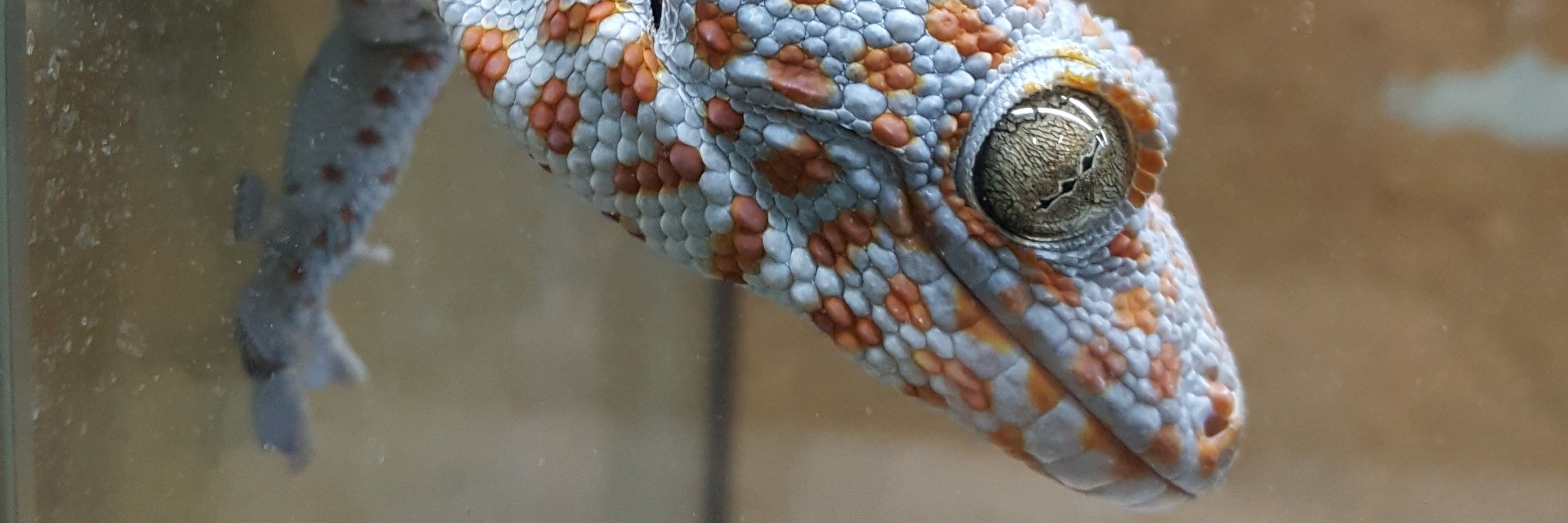

Me and my load of tech and trusty duct tape will be repping @ecobird.bsky.social funded by @fwovlaanderen.bsky.social.
🐦📡

Me and my load of tech and trusty duct tape will be repping @ecobird.bsky.social funded by @fwovlaanderen.bsky.social.
🐦📡
I am currently raising cute quails 🐥 to study the effects of enrichment on the development of the brain, cognition, behaviour, and health! I am learning loads of new skills @ecobird.bsky.social

I am currently raising cute quails 🐥 to study the effects of enrichment on the development of the brain, cognition, behaviour, and health! I am learning loads of new skills @ecobird.bsky.social
Fueled by curiosity and a deep love of natural history Daniela discovered a REM-like sleep state in spiders and uses integrative field, lab and comparative approaches to investigate the function, ecology, and evolution of sleep across the spider tree of life.

Fueled by curiosity and a deep love of natural history Daniela discovered a REM-like sleep state in spiders and uses integrative field, lab and comparative approaches to investigate the function, ecology, and evolution of sleep across the spider tree of life.
ecoevorxiv.org/repository/v...
ecoevorxiv.org/repository/v...
🌳 doi.org/10.1101/2025... 🌳
Using data from 19 forest plots in Flanders, we found that forest structural complexity isn’t a consistent predictor of multidiversity and responses across taxa were mostly weak or inconsistent.
@ecobird.bsky.social | @fornalab.bsky.social

🌳 doi.org/10.1101/2025... 🌳
Using data from 19 forest plots in Flanders, we found that forest structural complexity isn’t a consistent predictor of multidiversity and responses across taxa were mostly weak or inconsistent.
@ecobird.bsky.social | @fornalab.bsky.social
www.predatoryjournals.org @predatoryjournals.org
I have been receiving plenty of generic emails to join editorial boards in MDPI and Frontiers. At exactly the same time, friends receive the same generic emails..
www.predatoryjournals.org @predatoryjournals.org
I have been receiving plenty of generic emails to join editorial boards in MDPI and Frontiers. At exactly the same time, friends receive the same generic emails..
Urbanization reshapes the social behaviour of wall lizards
Now out in #BiologyLetters @royalsocietypublishing.org
🔗 royalsocietypublishing.org/doi/10.1098/... @averymaune.bsky.social

Urbanization reshapes the social behaviour of wall lizards
Now out in #BiologyLetters @royalsocietypublishing.org
🔗 royalsocietypublishing.org/doi/10.1098/... @averymaune.bsky.social
@cpaintingnz.bsky.social is a Senior Lecturer and behavioural ecologist at the University of Waikato. Her research seeks patterns in animal behaviour and morphology, with a particular focus on insect and arachnid mating systems.
🪰🕷️🪳

@cpaintingnz.bsky.social is a Senior Lecturer and behavioural ecologist at the University of Waikato. Her research seeks patterns in animal behaviour and morphology, with a particular focus on insect and arachnid mating systems.
🪰🕷️🪳
go.nature.com/3I4wd8E

go.nature.com/3I4wd8E
But how do you show this in a scientific way?
My latest for @nytimes.com on a clever @coldbloodedcog.bsky.social study:

But how do you show this in a scientific way?
My latest for @nytimes.com on a clever @coldbloodedcog.bsky.social study:
🔍 Our study checked data/code-sharing policies in 275 eco/evo journals and compliance in Proc B (n=2,340) & Ecology Letters (n=571). Policies exist, but clarity and strictness vary, affecting reproducibility.
🔗 doi.org/10.1098/rspb...

🔍 Our study checked data/code-sharing policies in 275 eco/evo journals and compliance in Proc B (n=2,340) & Ecology Letters (n=571). Policies exist, but clarity and strictness vary, affecting reproducibility.
🔗 doi.org/10.1098/rspb...


www.unine.ch/biologie/wp-...

www.unine.ch/biologie/wp-...

journals.biologists.com/jeb/article/...

journals.biologists.com/jeb/article/...
🐒🦜🐜🐕👶🦎🐐🐟
📅 September 12, 11:00 a.m. (ET) on Zoom
🔗Registration: airtable.com/app0bcw8jYPv...
#openscience #bigteamscience

🐒🦜🐜🐕👶🦎🐐🐟
📅 September 12, 11:00 a.m. (ET) on Zoom
🔗Registration: airtable.com/app0bcw8jYPv...
#openscience #bigteamscience




@mandyridley.bsky.social
doi.org/10.1093/behe...

@mandyridley.bsky.social
doi.org/10.1093/behe...

#Reptile #Learning #DevelopmentalPlasticity
doi.org/10.1093/behe...

#Reptile #Learning #DevelopmentalPlasticity
doi.org/10.1093/behe...

